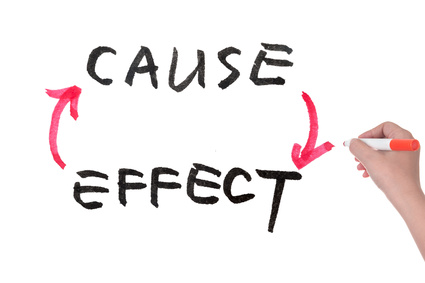
The immigration court system has many flaws. Too much due process is not one of them.
A few years back, Law Professor Bennett L. Gershman aptly described how immigration courts work:
“Imagine a legal proceeding where the judge is hired by the chief prosecutor, the defendant is charged with an unintelligible offense, he has no lawyer to defend him, the proceedings are conducted in a language he does not understand, and the punishment is banishment from his home, his livelihood, and his family for the rest of his life.”
This system, he noted, represents justice in America’s immigration courts.
As a removal defense lawyer, I doubt there is any immigration attorney in America who would dispute Gershman’s portrayal.
A Misguided Solution To Overcrowded Immigration Courts
So what’s the solution?
According to the Center For Immigration Studies, cut back on due process.
Writes David North, in an article entitled Too Much Due Process/Too Few Judges Throughout Immigration System:
“The uproar created by the flood of illegals from Central America at the Texas border perhaps can focus our attention on a long-neglected underlying problem – we have too much due process in the immigration system and too few judges (and supporting staff) to handle it.”
If you are going to give every illegal entrant a court trial, and maybe even provide each illegal with a lawyer and some time before a trained judge – you should be ready to fund that process, as well as the detention camps where you keep the illegals. Obviously, the administration prefers to let the illegals run loose — or even finance their bus trips to the interior – rather than face up to the inherent conflict between too much process and not enough processors.”
North’s position is based on an odd combination of arguments.
Because there is a backlog of immigration cases, he asserts, courts should allow immigrants a lower degree of due process. By lowering due process, removal cases will be processed more quickly from start to finish. This gives immigrant defendants less time to fight back.
Ah, that’s the rub.
Less due process equals faster cases equals more deportations.
Due Process: Cause Or Consequence Of Judicial Overload?
Clearly, our system has too few judges and overloaded court dockets.
However, I disagree that our immigration detention system has too few holding cells.
Being an immigration attorney serving San Bernardino, I visit the Adelanto detention center fairly often. It’s a new facility, only a few years old, but it already looks full to me.
Yet, it is undergoing expansion. When construction is complete, it will be the nation’s largest detention center. On the other hand, I have not heard news about any facilities being closed.
Moreover, if President Obama’s plan for the Central American refugee children goes into effect, there will be new detention centers built and opened. Common sense dictates that once opened, the beds will be occupied.
This means immigration reform advocates should expect a push beyond the current national daily detention bed quota of 34,000.
Now, let’s return to North’s position.

In his opinion, since the immigration judicial system is overcrowded, we need to reduce due process.
North’s approach muddles logic, flipping cause and effect on its head.
Due process issues are the consequence, not the cause, of backlogged court dockets.
Lady Liberty: Blindfolded, Not Hoodwinked
Absent an out-of-control immigration law enforcement agency, courts would not be as packed as they are today – and there might be enough time for judges to move cases along at a pace which ensures the provision of due process at a level consistent with our constitutional notions of fair play.
The solution, in short, is to reform excessive detention and deportation policies.
The problem is not too much due process.
Rather, it’s too little.
Under our system of law, justice is supposed to be dispensed on a neutral basis.
This means, of course, Lady Liberty should be blindfolded.
Not hoodwinked.
By Carlos Batara, Immigration Law, Policy, And Politics




